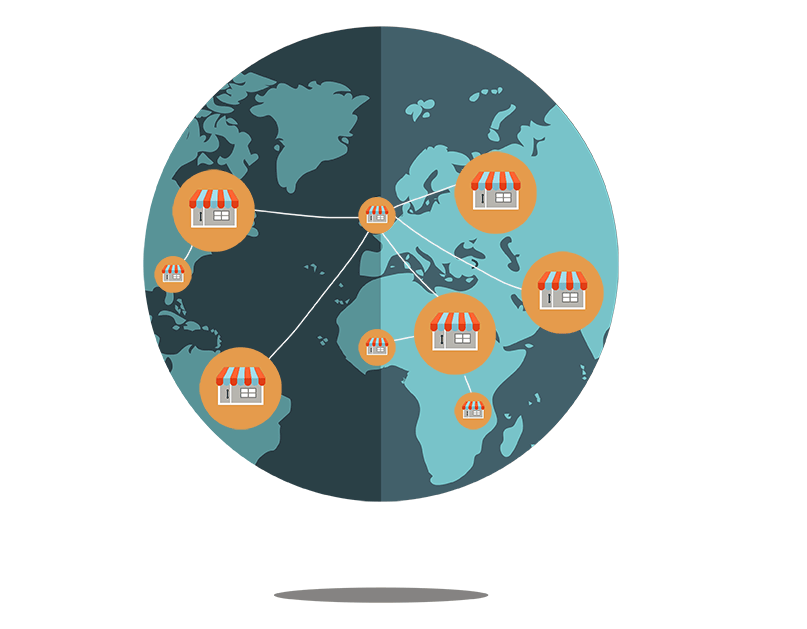Establishing a wholly-owned business using direct franchising
This is one alternative to setting up wholly-owned, directly managed outlets
If you already operate a franchise model in the UK, you will recognise some of the basic advantages and disadvantages of expanding by this route. Franchisees will be recruited in the target market who will have a direct legal relationship with you, typically governed by UK law. They will, however, be governed by their own local laws as well as having to abide by the UK Franchise Agreement.

Some of the Major Advantages
- Probably the most often-quoted advantage of franchising is that the franchisor has to make a limited initial investment in establishing each outlet as it is the franchisee who makes the major investment is setting up the business. Moreover, what investment the franchisor does have to make, for example the costs of finding and recruiting the franchisee and of training and advising them, is recoverable from the franchisee through the Initial Franchise Fee..
- You are likely to be able to establish your network more rapidly because your investment requirement is reduced
- Given that the franchisee has invested substantial sums into setting up the business they are likely to be more highly motivated to deliver a successful business than an employed manager might be.
- It will be the franchisee who ‘hires and fires’ their staff and who will be responsible for complying with local laws and practices
- You are likely to be able to establish a ‘footprint’ for your brand more rapidly than by growing organically
Some of the Disadvantages…
- You will need to establish a separate management and support structure to find and recruit your franchisees and to provide the ongoing monitoring and support to your franchisees
- You, or someone in your business will need to be proficient in the language of the target country and, in particular, the business and commercial elements of that language
- You will need to engage lawyers who are qualified to practice in your target country to ensure that Franchise Agreements are drafted within local legislation even though they may be governed by UK law. For example, a country may require the Franchise Agreement to be written in the local language irrespective of the nationality of the potential franchisee. So, a franchisee, whose native language is English and who is signing with a UK Franchisor to provide services to a specific UK ex-pat community may still have to sign a Franchise Agreement written in the language of the country in which they will operate.
- You may need to set up a company in the target country which may operate as a subsidiary of your UK company. It is this company which will receive the Franchise Fees from your franchisees. There may be restrictions, now or in the future, on how this income can be repatriated to the UK and under which country’s taxation rules.
